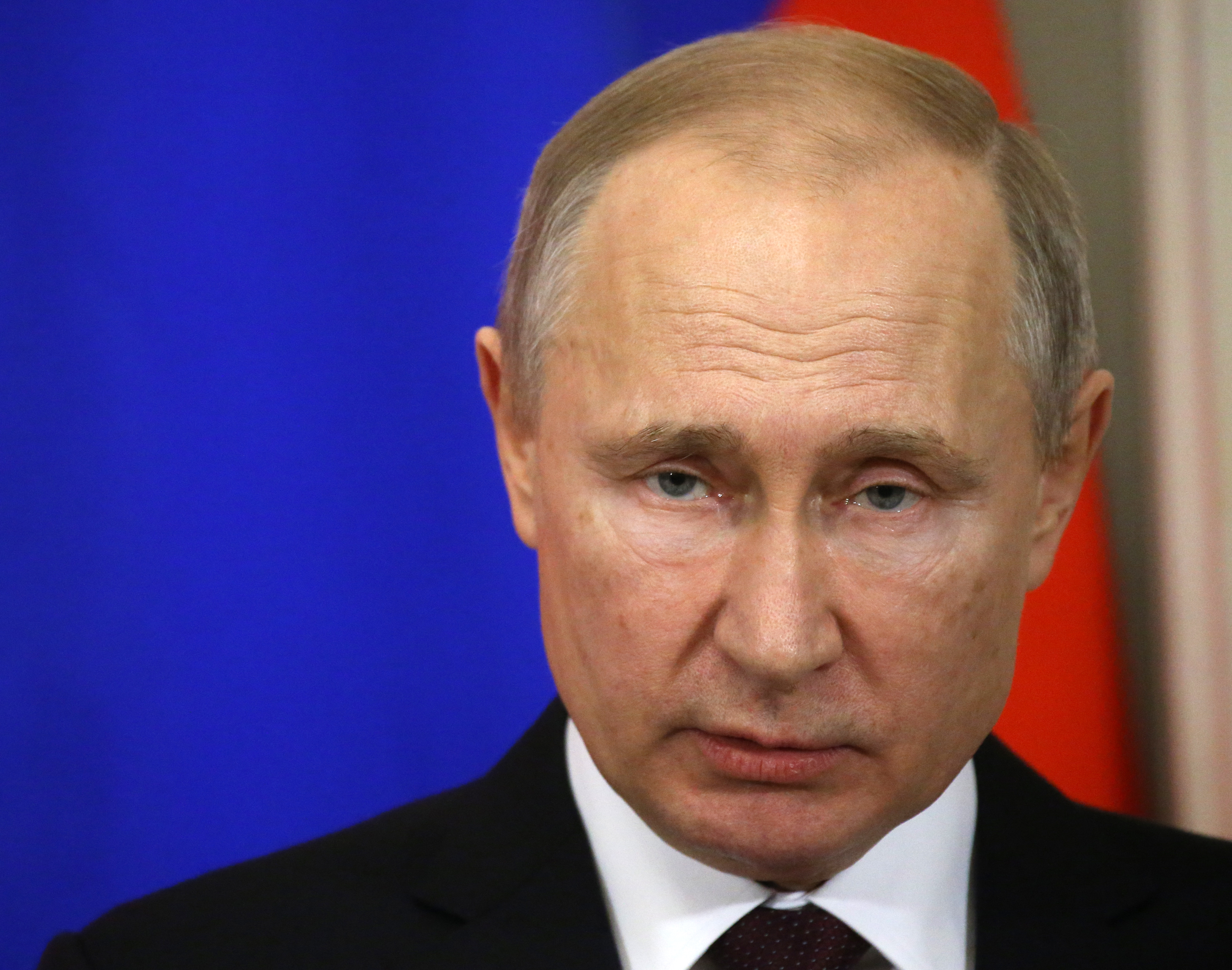Kremlin propagandists have suggested on state TV that Russian authorities create a new empire in Europe.
The idea was floated by Vladimir Solovyov, one of the most well-known figures in Kremlin-backed media, and one of his guests on a show that airs on Russia-1. An excerpt was posted on X, formerly Twitter, by Anton Gerashchenko, an adviser to Ukraine's minister of internal affairs.
State TV propagandists routinely float the idea of either striking or seizing the territory of NATO members amid the ongoing war in Ukraine. Newsweek has contacted Russia's foreign ministry for comment via email.

"Russian propagandists discuss re-creating an 'Austrian-Hungarian territory' protected by a Russian contingent," wrote Gerashchenko.
"We as a military-scientific society will look at the future Europe after our victory. And we will say: well, look, there is a nice country, Austria, seemingly neutral, there is Slovakia, which said that it feels uncomfortable near the warring Ukraine and it is better not to help it, there is Hungary, which also does not want to have anything to do with it, and then there is the whole area of the former Yugoslavia, Serbia, etc," a state TV guest, who Newsweek wasn't able to immediately identify, suggested.
"Let us make a neutral territory out of this central Europe, a very good place by the way, let us make an Austro-Hungarian territory," he added, referring to the the Austro-Hungarian Empire, which was, between 1867 and 1918, a multi-national constitutional monarchy in central Europe.
Russian propagandists discuss re-creating an "Austrian-Hungarian territory" protected by a Russian contingent. pic.twitter.com/PtyMysxQyG
— Anton Gerashchenko (@Gerashchenko_en) December 4, 2023
"I've been waiting for someone to say that," Solovyov responded to his guest's suggestion. "Let's revive the great Austria-Hungary...from Poland to the Mediterranean, to the Balkans," said the guest, adding that Russia wouldn't "attack" the countries.
"We'll say, 'Guys, we're not going to attack you,'" he said.
Solovyov added: "We'll even put our own contingent there so no one will attack them."
Just days earlier, Solovyov and Margarita Simonyan, the editor-in-chief of state-controlled media organization RT, suggested that Russia could invade the U.S. states of Alaska, California or Hawaii.
Alaska was once part of Russia. In 1867 it was sold to the U.S. for $7.2 million after then-U.S. President Andrew Johnson signed the Alaska Treaty. It was formally transferred by Russia to the U.S. on October 18, 1867, and it gained the status of a state on January 3, 1959.
During a discussion last month about why Russia would want to seize Portugal, Solovyov quipped that Lisbon has never been Russian, and Simonyan added that Alaska was, at one point.
"And California was. But why do we need Lisbon?" another co-host asked.
Despite this assertion, California was never part of Russia, although in the early 19th century Russia established the outpost of Fort Ross in what is now Sonoma County, California, with Russian colonists living there between 1812 and 1841.
Russia founded three short-lived forts on the Hawaiian island of Kauai in 1817. Hawaii was a kingdom until 1893 and became a republic in 1894, before ceding itself to the U.S. in 1898, and becoming a state in 1959.
Do you have a tip on a world news story that Newsweek should be covering? Do you have a question about the Russia-Ukraine war? Let us know via worldnews@newsweek.com.
Uncommon Knowledge
Newsweek is committed to challenging conventional wisdom and finding connections in the search for common ground.
Newsweek is committed to challenging conventional wisdom and finding connections in the search for common ground.
About the writer
Isabel van Brugen is a Newsweek Reporter based in Kuala Lumpur. Her focus is reporting on the Russia-Ukraine war. Isabel ... Read more
To read how Newsweek uses AI as a newsroom tool, Click here.





